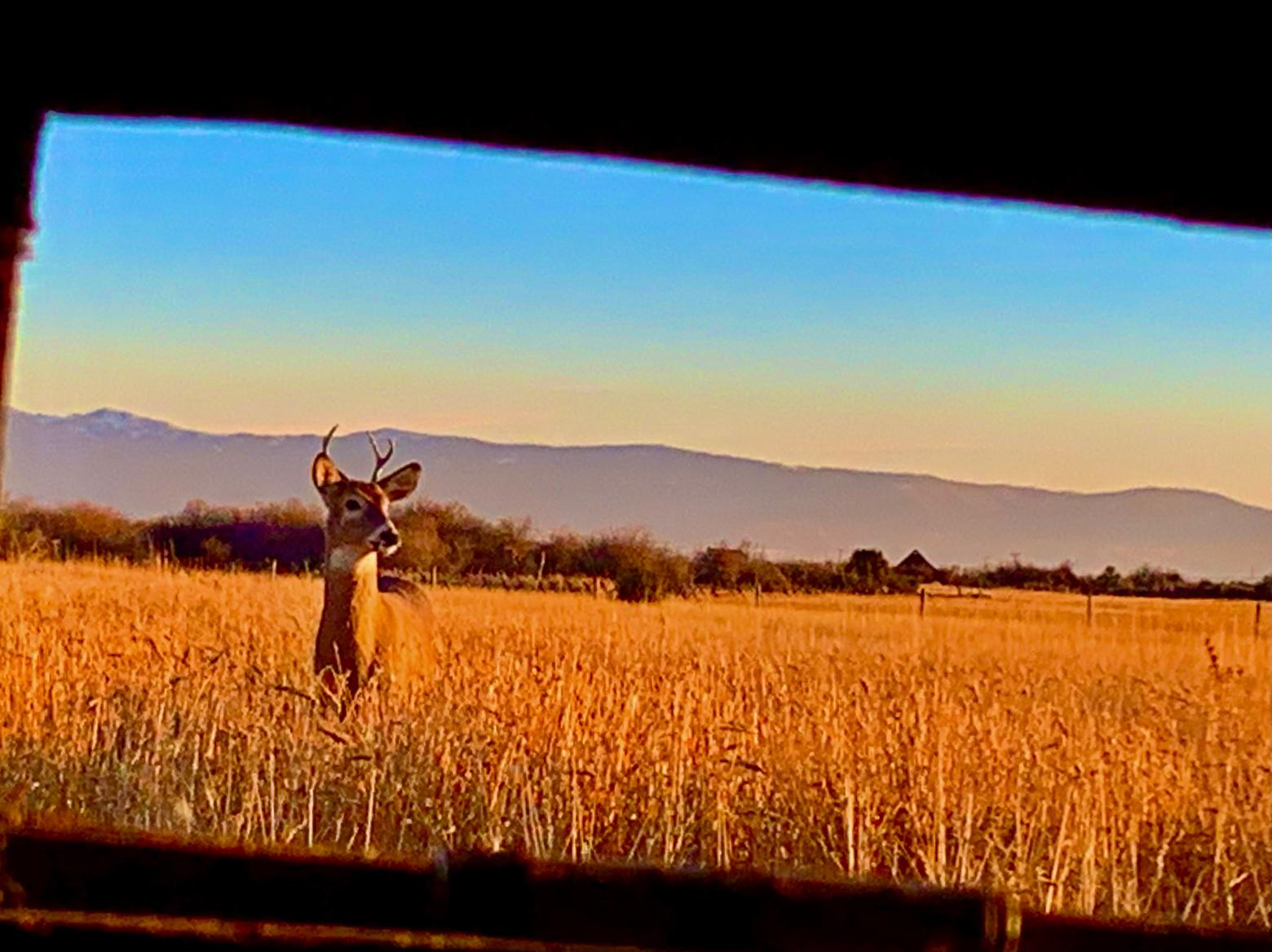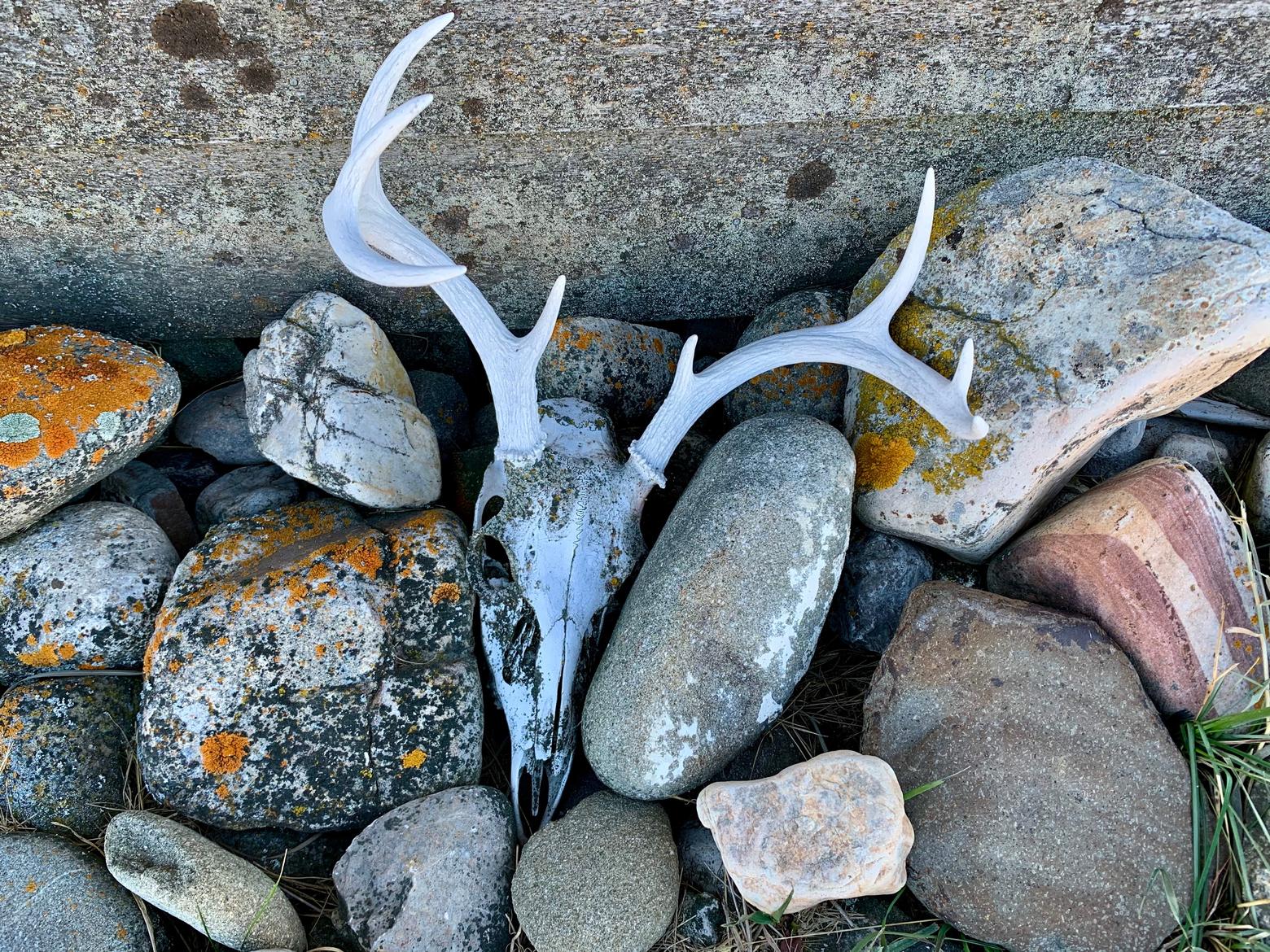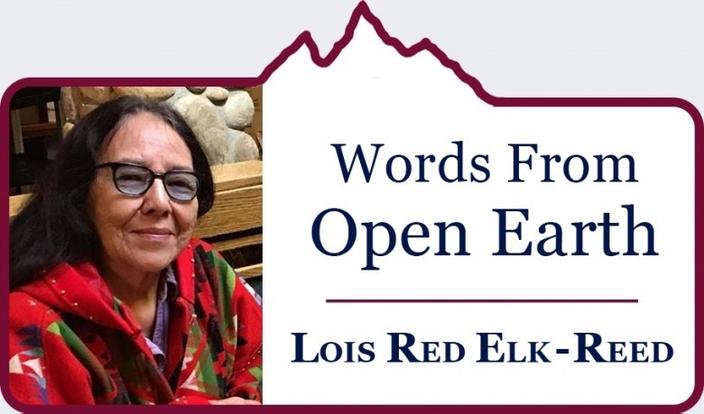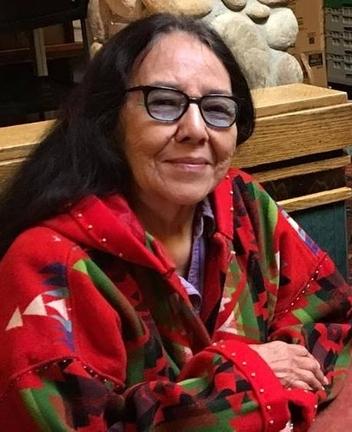Back to StoriesThe Sacred Songs We Know But Do Not Sing
EDITOR'S NOTE: It is with relief and enthusiasm that Mountain Journal's poet in residence, Lois Red Elk, returns just in time to deliver a new poem for the start of Winter Solstice. It is that third week in December when we head into the darkest days of the year quickly followed by a steady rise toward more hours of sunlight and hopefully more enlightenment.
December 10, 2022
The Sacred Songs We Know But Do Not SingFrom the high prairie, poet Lois Red Elk looks toward the solstice and pays tribute to the deer people
EDITOR'S NOTE: It is with relief and enthusiasm that Mountain Journal's poet in residence, Lois Red Elk, returns just in time to deliver a new poem for the start of Winter Solstice. It is that third week in December when we head into the darkest days of the year quickly followed by a steady rise toward more hours of sunlight and hopefully more enlightenment.
From her home at Fort Peck near a place where the Missouri River turns into a massive lake on the northern US prairie, Lois notes that real winter has returned, like those of old, and along with it, she is on the mend after dealing with onset of illness. Her poem, below, titled "Winter Interval of Deer People," is both poignant in exploring duality and introducing a few new words, native to this continent and part of her Lakota/Dakota language. Join us in welcoming Lois back from her own kind of temporary creative hibernation. To all MoJo readers, she sends her warm and best regards. —Mountain Journal
by Lois Red Elk
Winter Interval of Deer People
There is frost on the trees where they live,
a shimmering layer to quench hotun thirst.
With earth frozen quiet, trees dormant, only
s’ake timbre echo as deer make their way.
I have heard them for centuries, living a life
parallel to Dakota tiospaye to Native women.
In Spring it is always the watchful eye, urgent
heartbeat, ever the quick reflex to wacipi
At the height of the sun, they bath, claim
nourishment from twigs, offer woihanble.
Within colorful leaves they hide wounspe,
send breath toward those who will listen.
As snow falls, they seek their nagi and
wait, wait for the nod from deer spirit
then listen for olowan message, what we
all know and know we can never sing.
© Lois Red Elk
Hotun – animal cry
S’ake – hoof
Tiospaye – clan
Wacipi – dance
Woihanble – a dream
Wounspe – knowlwdge
Nagi – shadow
Olowan – their song
POSTNOTE: We are pleased that Lois is working away on a new collection of poems and will let you know when it is published. In the meantime, ask for her other volumes at your favorite local bookseller: Our Blood Remembers, winner of the best non-fiction award from Woodcraft Circle of Native Writers and Storytellers; Dragonfly Weather; and Why I Return to Makoce with a foreword from Montana's recent state poet laureate Lowell Jaeger and nominated for a High Plains Book Award in poetry. Given headlines that continue to appear about the discoveries of new atrocities committed at boarding schools for indigenous children, we encourage you to read Lois' contribution to MoJo that appeared in June, The Unspeakable Past Of Indian Boarding Schools
Make sure you never miss a Lois Red Elk poem by signing up for Mountain Journal's free weekly newsletter. Click here: https://bit.ly/3cYVBtK





